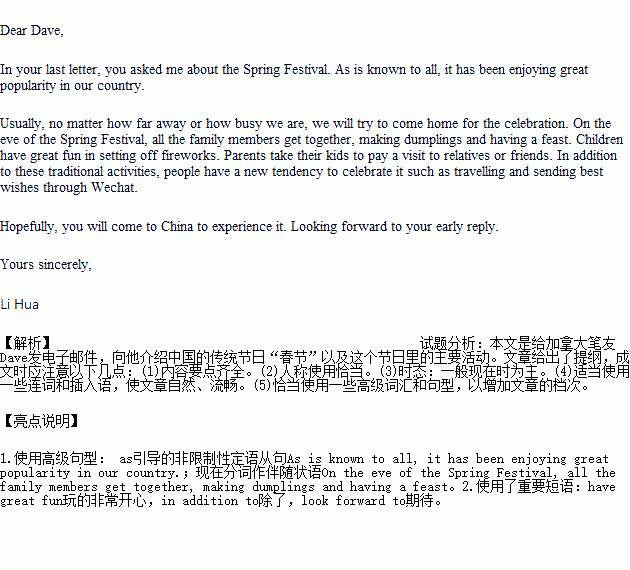��Ŀ����
�������������ļ��ô����Dave���˽��й��Ĵ�ͳ���ա����ڡ�������ظ����ĵ����ʼ������ܡ����ڡ���������������Ҫ���
1.�����й��Ĵ�ͳ����֮һ��
2.�����žۣ�
3.�Խ��ӡ�����������ѵ��������
ע�⣺1.����100���ң�2. ���ʵ�����ϸ�ڣ���ʹ�������3. ��ͷ��β��Ϊ��д�ã�������������
�ο��ʻ㣺
����the Spring Festival �����set off fireworks
Dear Dave,
In your last letter, you asked me about the Spring Festival.____________________________________________
__________________________________________________________________________________
__________________________________________________________________________________
__________________________________________________________________________________
___________________________________
Yours sincerely,
Li Hua
��ϰ��ϵ�д�
�����Ŀ


 de talking. Allowing your pride to control your feelings will leave you bitter and confused.
de talking. Allowing your pride to control your feelings will leave you bitter and confused.